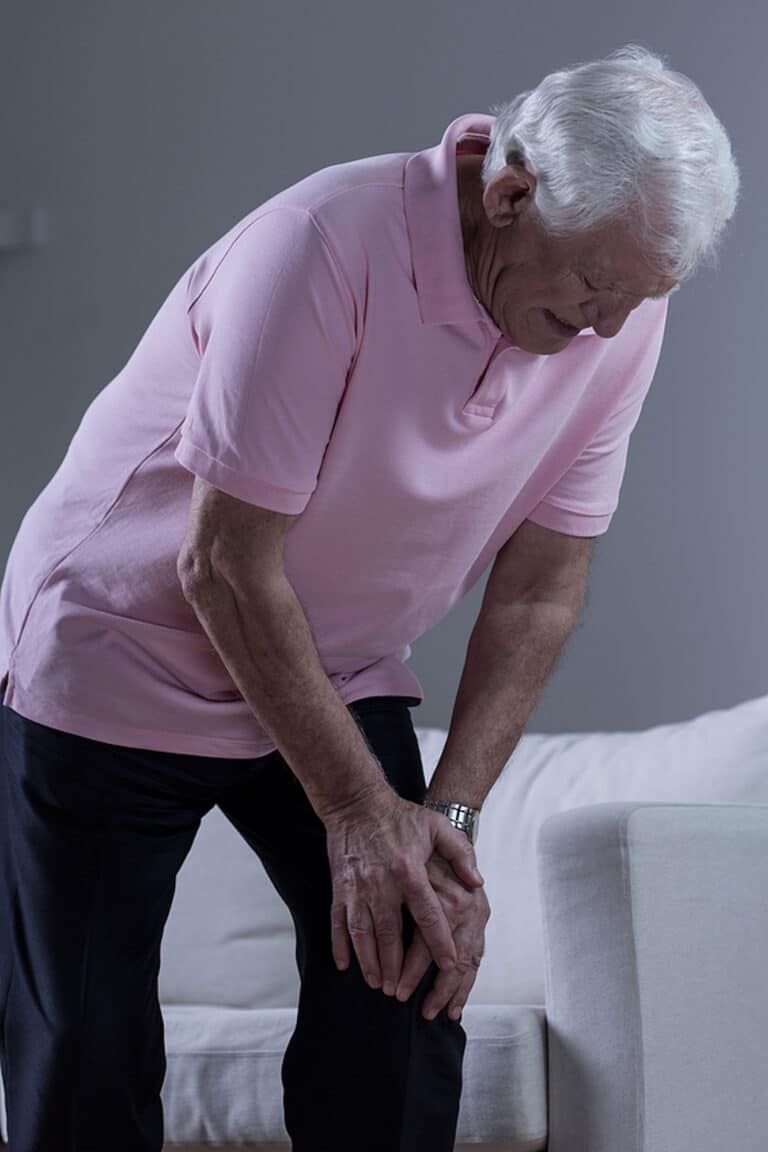Knee discomfort is a typical problem for seniors, affecting mobility, independence, and general quality of life. As we age, our knees, which are key weight-bearing joints, wear and degrade. Over time, more pain and discomfort are felt, along with less mobility. Understanding the causes, prevention actions, and management options can greatly improve the outcomes for seniors suffering from knee discomfort.
With the help of senior home care and loved ones, they can gain access to valuable knowledge and be encouraged to talk with their medical team if needed.
Common Causes of Knee Pain Among Seniors
No two seniors are the same, but there are some common causes for most knee pain, including the following:
- Osteoarthritis: Osteoarthritis (OA), commonly known as “wear-and-tear arthritis,” is one of the most common causes of knee discomfort in seniors. Over time, the cartilage that cushions the knee joint deteriorates, causing bone-on-bone friction, swelling, and pain.
- Rheumatoid Arthritis: This autoimmune disorder produces inflammation in the joints, particularly the knees. Rheumatoid arthritis, unlike osteoarthritis, can be symmetrical, affecting both knees simultaneously.
- Bursitis: The knee joint is surrounded by fluid-filled sacs called bursae that cushion and minimize friction. Prolonged kneeling or repetitive movements might inflame these sacs, resulting in bursitis.
- Tendonitis: Tendonitis is inflammation of the tendons that connect muscles to bones. Tendonitis in seniors is frequently caused by overuse or minor injuries, which are compounded by age-related tissue elasticity loss.
- Meniscus Tears: The meniscus is a cartilage structure that supports and cushions the knee. Aging weakens it, increasing the probability of tears from even basic tasks such as stepping awkwardly.
- Bone Conditions: Osteoporosis and bone weakening can cause fractures near the knee joint, particularly after a fall. Bone spurs, formed when bones grow unnaturally, can also cause knee pain.
Prevention Strategies
While aging is unavoidable, there are numerous ways to reduce the likelihood or severity of knee pain, including getting help from senior home care:
- Physical Activity: It might seem counterintuitive, but regular exercise can help to relieve pressure on the knees by strengthening the muscles around them, particularly the quadriceps and hamstrings. Swimming and yoga are both great low-impact activities for seniors to try, or they and senior home care can walk around the block in a nearby park.
- Healthy Weight Management: Excess weight increases the stress on the knees and could cause premature cartilage wear and tear. By adding exercise to their routine and focusing on eating well, seniors can maintain a weight that is better for their knees.
- Proper Footwear: Supportive shoes help to uniformly distribute weight, minimizing misalignment and lowering knee stress.
- Avoid Repetitive Stress: Seniors should avoid tasks that require prolonged kneeling, crouching, or high-impact actions that strain the knees.
Managing Knee Pain
When it comes to managing knee pain, seniors have several options, including medical treatments, which might include over-the-counter medications to help reduce discomfort or inflammation or corticosteroid or hyaluronic acid injections. In severe cases, seniors may need surgery, but thanks to advancements in the procedure, the rates of success and recovery time are both positive.
Additionally, a physical therapist can teach seniors activities that strengthen muscles, enhance joint stability, and increase flexibility while minimizing pain. Finally, some seniors might be interested in non-invasive treatments such as acupuncture, massage therapy, and heat or cold therapy that may offer extra relief.
Knee pain in seniors can be caused by various factors, including age-related changes, lifestyle factors, and individual health conditions. The good news is that with the help of senior home care, seniors can focus on proactive prevention through exercise, food, and lifestyle changes.
If you or an aging loved one are considering Senior Home Care in Essex, MD, please contact the caring staff at A+ Personal Home Care. Call (443) 660-8757, After Hours: (443) 796-5241
A+ Personal Home Care is a Trusted Home Care Agency serving the Baltimore and DC Metro Area, with offices in Pikesville and Gaithersburg.
At A+ Personal Home Care, our mission has always been to provide exceptional care, compassion, and a nurturing environment for our beloved community members. Over the years, we have strived to create a place where individuals can find solace, engage in meaningful activities, and receive the highest quality of medical attention.
A+ Personal Home Care is always striving to improve and exceed expectations. We welcome feedback and suggestions from our clients and their families, as your input is invaluable in shaping the future of our care programs. We want to ensure that we continue to meet your needs and remain a trusted pillar of support within our community.
I would like to extend my deepest gratitude to all the families who have placed their trust in us. Your support and loyalty inspire us to continue providing exceptional care every day. We are committed to fostering an atmosphere of love, respect, and dignity, and we consider it an honor to serve you and your loved ones.
Should you have any questions, concerns, or ideas, please do not hesitate to reach out to me or any member of our dedicated team. We are here to listen, assist, and ensure that your experience at A+ Personal Home Care remains fulfilling and positive.
Thank you once again for choosing A+ Personal Home Care as your partner in care. We look forward to sharing many more moments of joy, growth, and healing with you and your loved ones in the days to come.
- Minimizing Fall Risk with Leg and Core Exercises - May 9, 2025
- How To Keep Your Senior Parent With Alzheimer’s Safe At Home - April 24, 2025
- Around The Clock Care Helps Seniors Recover At Home - April 11, 2025



